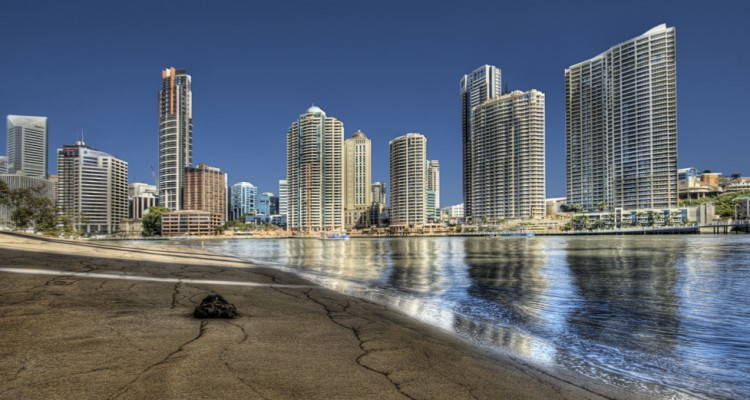Australia’s casino bosses are predicting that tourism could be the next gold rush. Mineral extraction – not only gold – has been a traditional bedrock of the Australian economy, but with the price of the dollar at a historically significant low and the demand for tourism to Australia at an all-time high, conditions are ripe for Australians to enjoy a much-needed influx of revenues from overseas visitors.
Part of that positive scenario is the readiness of politicians and regional authorities to embrace the potential that new casino-based resorts deliver. In Queensland Echo Entertainment’s winning $2 billion bid for the Brisbane Queen’s Wharf waterfront development project is founded on the basis that visitors from Asia, and China in particular, represent an under supplied population, desperate to enjoy a combination of luxury and high-class gaming opportunities.
Echo Entertainment’s chief executive, Matt Bekier, was understandably delighted when his company fought off competition from James Packer’s Crown Resorts to win the contract. Bekier has revealed that Echo Entertainment are to relocate their headquarters from Sydney to the Queensland coast as part of a move which has also drawn a positive reaction from Queensland premier, Annastacia Palaszczuk. Palaszczuk has insisted the benefits of the development will be enjoyed for decades to come.
Whilst the resort will be open to Australian nationals, the business model that Echo Entertainment are working to is clearly founded on attracting overseas tourists. Australians are by no means reluctant gamblers. In fact the figures for Australian gambling show they are amongst the most avid players anywhere. But recent research shows that Australian gamblers are increasingly choosing to gamble online rather than in resorts.
In a market place that has been assiduously addressed by the world’s leading online casino providers, Australian punters are able to enjoy all the thrills of a big night out without the additional travel and expense that a casino visit entails. Australian rates of internet connection are amongst the highest worldwide, and the high degree of penetration enjoyed by 32Red Australia and its competitors such as Royal Panda.com Casino-mate.com show that whilst there is an appetite for gaming facilities amongst Australians, these are already well supplied by online providers.
Palaszczuk has been quick to point to the benefits of what she predicts will be ‘millions’ of visitors annually. The development is set to deliver thousands of jobs and ensure a positive investment momentum, pulling in further entrepreneurial and business initiatives. Palaszczuk is eagerly anticipating what pundits have quickly hailed as a 21st century gold rush along Australia’s gold coast. The equivalent online bonanza – as enjoyed by 32Red or other online providers like Betway or FoxyCasino – is more limited in scope and less easily administered by local politicians. Online businesses are, by definition, more streamlined than conventional service industries.
The figures behind the Echo Entertainment proposal certainly make a convincing case. Bekier has been vociferous in declaring that amongst Asian tourists – or would be tourists – market research shows that Australia is seen as the most desired location, even though it actually ranks at around 14th for tourist destinations.
As Bekier is keen to point out, the disparity between what those potential tourists say they want and what they are currently doing represents a tremendous opportunity. China is currently Australia’s fastest growing source of overseas visitors. In 2014, 918,000 Chinese visitors spent some time in Australia – an increase of 21.7% on 2013. The only bigger source of visitors was New Zealand, but it is perhaps not surprising to note that the Chinese represented the bigger spenders, having spent $5.7 billion, 19% more than the previous year.
Perhaps perversely, the downturn in the Chinese economy – which is itself hitting the Australian extraction industry as demand for raw materials slumps – is adding to the gold rush sentiment. Investors are increasingly turning to the service and entertainment industries as a means to leverage their investments.
Palaszczuk explained that the reason for choosing Echo Entertainment over the competition was that they offered what she described as ‘a better use of public space’ and – perhaps more significantly – because they were in a position to be able to start work on the development straight away. With Brisbane’s economy sagging, the promise of 3,000 construction jobs during the build phase of the project and a further 8,000 jobs once the resort is in full swing were powerful arguments for getting the development under way at the earliest opportunity. As the gold rush analogy clearly indicates, time is of the essence for everyone involved in the Brisbane venture.
Building work is due to start in late 2016 with an opening date scheduled for 2022.


